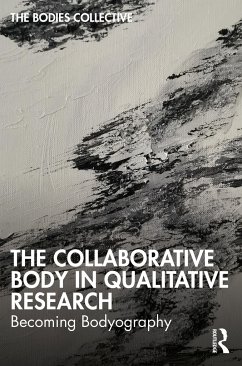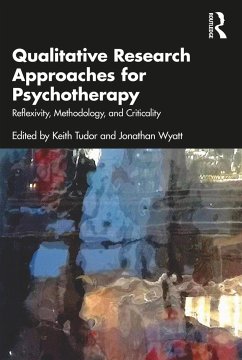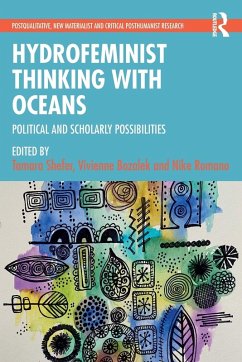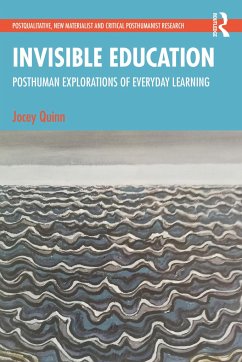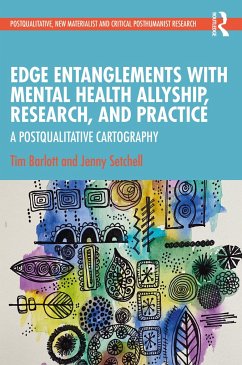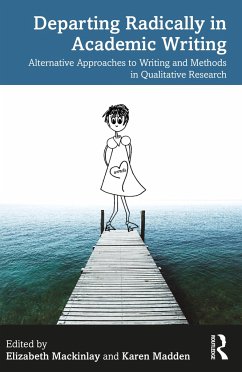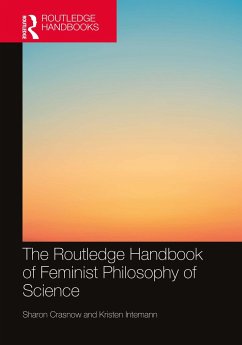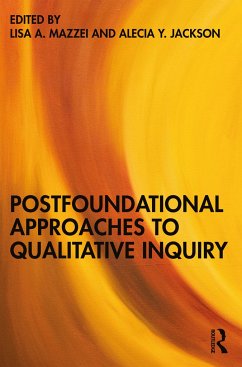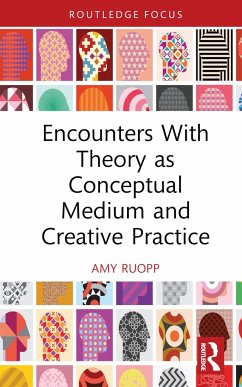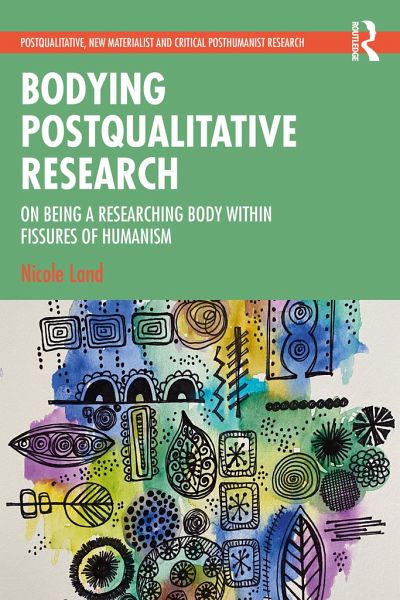
Bodying Postqualitative Research
On Being a Researching Body within Fissures of Humanism
Versandkostenfrei!
Versandfertig in 6-10 Tagen
42,99 €
inkl. MwSt.
Weitere Ausgaben:

PAYBACK Punkte
21 °P sammeln!
Bodying Postqualitative Research posits the question of what happens when lived, fleshy human bodies engage in postqualitative research in education. It takes as its central concern research propositions aimed at dismantling the structures of humanism that typically govern research in education and uses postqualitative conceptions of data, methodology, and clarity in conjunction with insights from feminist science studies scholars to imagine how we might 'body' postqualitative work.This book uses the provocations offered by postqualitative research and takes these touchpoints to dismantle domi...
Bodying Postqualitative Research posits the question of what happens when lived, fleshy human bodies engage in postqualitative research in education. It takes as its central concern research propositions aimed at dismantling the structures of humanism that typically govern research in education and uses postqualitative conceptions of data, methodology, and clarity in conjunction with insights from feminist science studies scholars to imagine how we might 'body' postqualitative work.
This book uses the provocations offered by postqualitative research and takes these touchpoints to dismantle dominant logics of research, born of neoliberalism and ongoing settler colonialism to offer alternative perspectives. Importantly, this book stays near to the body by proposing caffeine shakes, antipsychotic medications, and scars as moments to take seriously how bodies do researching practices. After each chapter, the book turns to poetry as a "fracture" or a moment of disruption tothe rhythm of the text that incites readers to reconsider the previous chapter otherwise. It concludes by asking what bodying postqualitative research might mean for pedagogy and for propositions toward future inquiry. Drawing together the work of feminist science and education scholars oriented toward the biosciences and whose work has not yet been immersed into postqualitative scholarship in a sustained way, this book brings together a vein of feminist science studies theorizing that both deepens and troubles postqualitative scholarship through its focus on the politics of science and the possibilities of doing bodies with biology, culture, and life.
The volume is suitable for students and scholars interested in postqualitative and embodied research methods in education, and feminist and gender studies.
This book uses the provocations offered by postqualitative research and takes these touchpoints to dismantle dominant logics of research, born of neoliberalism and ongoing settler colonialism to offer alternative perspectives. Importantly, this book stays near to the body by proposing caffeine shakes, antipsychotic medications, and scars as moments to take seriously how bodies do researching practices. After each chapter, the book turns to poetry as a "fracture" or a moment of disruption tothe rhythm of the text that incites readers to reconsider the previous chapter otherwise. It concludes by asking what bodying postqualitative research might mean for pedagogy and for propositions toward future inquiry. Drawing together the work of feminist science and education scholars oriented toward the biosciences and whose work has not yet been immersed into postqualitative scholarship in a sustained way, this book brings together a vein of feminist science studies theorizing that both deepens and troubles postqualitative scholarship through its focus on the politics of science and the possibilities of doing bodies with biology, culture, and life.
The volume is suitable for students and scholars interested in postqualitative and embodied research methods in education, and feminist and gender studies.





